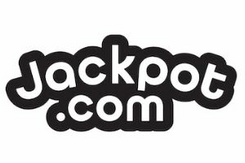Conga Lotto Scam
Mega Millions scams usually come in the form of advance-fee fraud schemes, which involve a fraudster falsely contacting individuals claiming that they are due a large sum of money.
On this page, you will find the various types of scams that lottery players should be aware of and tips on how to avoid them. It is important to note that it is not possible to win a prize for a lottery that you have not entered and Mega Millions representatives will never contact you regarding a win or fees before you receive your winnings.
A fantastic contract management life A fantastic contract management life cycle tool - improves productivity, proves contract negotiation isn't as scary as it seems, we love the ease of the installation to the efficient processes we can build around Conga Contracts and more importantly, WITHIN Conga Contracts. Find more than 2560 complaints, scams, lawsuits and frauds reported for Lottery companies on Services topic.
Conga Lotto Scam Site; Update 2017: This site has gone out of business and are no longer recommended by us. Lottery Scams; Lottery Scams. A lottery scam is an attempt to fraudulently extract money from someone by pretending to be a legitimate lottery company or winning player. It has sadly become a too common method of deception as such scams. Reputation Management. Corporate Advocacy Program. This is the best way to manage and repair your business reputation. Hiding negative complaints is only a Band-Aid. The scam is the fact they automatically signed me up for the EuroMillions game twice a week going forward. Luckily I noticed fairly quickly but this was not clearly highlighted whilst buying the Groupon deal. I have complained to both the gambling commission and Groupon. This scam could be devastating to the elderly and vulnerable.
How to Identify a Mega Millions Scam
Mega Millions scams take various forms, but here are some key features to look out for:
- Poor quality and incorrect grammar in a letter or email. The letter or email may be addressed to 'email holder' or 'winner' or 'reader', rather than using the victim's name.
- Some mail and email scams can look authentic, as scammers illegitimately use Mega Millions branding to persuade victims.
- The victim may receive a fake check, which can be attached to an email or letter and the fraudster might claim that it is for 'government taxes' or 'expenses'.
- The correspondence sent to the victim will emphasise that they should act to claim their prize as soon as possible and urges them to keep it 'confidential'. This is to make sure that the person who received the correspondence does not seek advice from others, which may expose the scam.
- The victim is asked to pay a 'processing fee' or 'tax' to be able to receive their winnings.
Types of Mega Millions Scams
Conga Lotto Scam Numbers
Mega Millions scams can take five different forms:
An email is sent to the victim, letting them know that they have won a large sum of prize money and it asks them to pay 'fees' or 'taxes' if they want to receive the full prize winnings. A link to a website where prizes can be 'claimed' may also be included in the email, which could be used for 'phishing' personal information or installing spyware on the victim's computer, giving the criminal access to private information.
Similar to email scams, a mail scam will try to convince the victim that they have won a huge sum of money and that they need to mail back a portion to be able to receive the full sum.
Phone
The fraudster calls the victim to notify them that they have won a large Mega Millions prize in the hope that they will agree to paying any 'fees' or 'taxes' to release the money. Scammers often use specific area codes that look like domestic U.S. phone numbers to trick victims, including; 876 (Jamaica), 473 (Grenada) and 268 (Antigua).
Scammers may also attempt to find out the victim’s bank details in order to access their accounts illicitly.
Cell Phone
Scammers send a text message to the victim from an unknown number telling them that they have won a Mega Millions prize. To claim the prize, victims are requested to call the number back, often on a premium rate number.
Conga Lotto Scam Site
Social Media
The victim receives a message on their personal Facebook, Twitter or another social media platform notifying them that they have been selected to win a Mega Millions prize. They are then told to act immediately and follow a specific, often malicious, link to claim the prize.
Conga Lotto Scam Alert

How to Report a Lottery Scam
Conga Lotto Scam Website

If you believe you have been contacted by a Mega Millions scammer, it is very important that you do not provide personal or financial information. If you already have, contact your bank as soon as possible to minimize the risk of identity fraud.
To report a lottery scam, you can contact your state's Attorney General using the list provided by the National Association of Attorneys General: http://www.naag.org/naag/attorneys-general/whos-my-ag.php
Complaints can also be sent to the FTC (Federal Trade Commission), a consumer protection agency: https://www.ftccomplaintassistant.gov